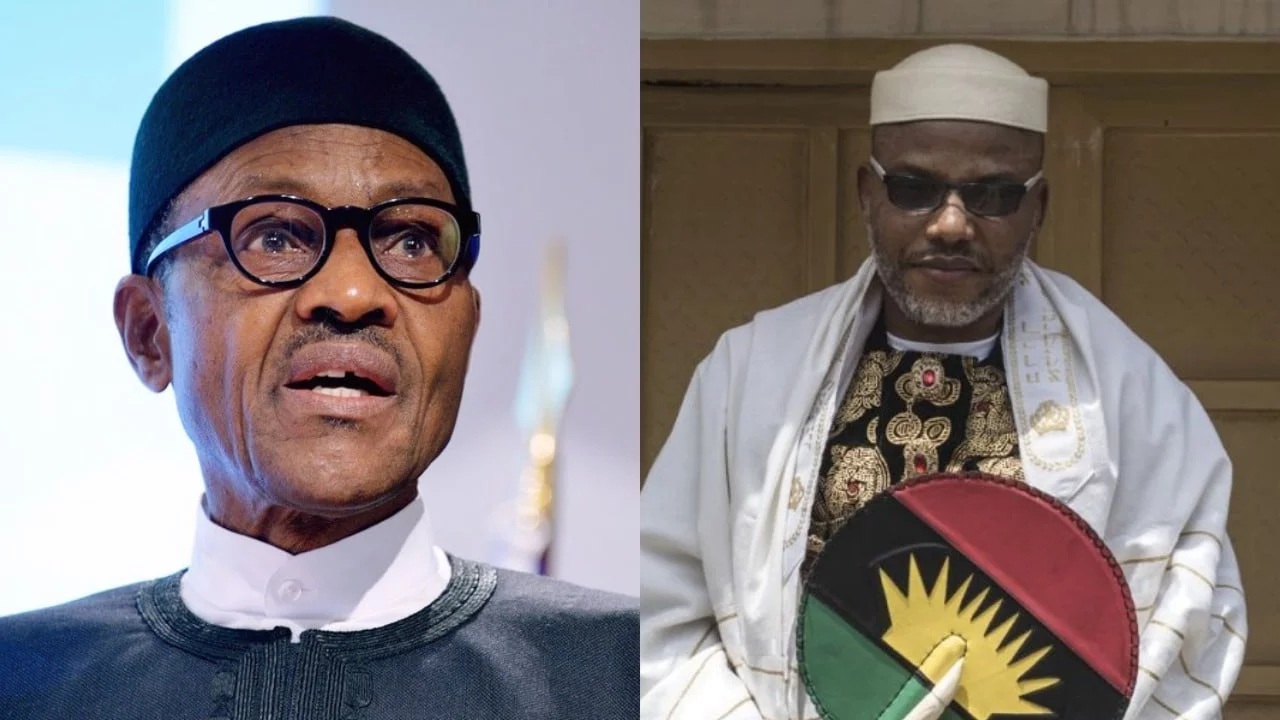The Indigenous People of Biafra (IPOB) has responded to recent revelations made by former presidential aide Garba Shehu concerning the widely publicized “villa rat invasion” incident that occurred during former President Muhammadu Buhari’s extended medical absence in 2017.
In a press release issued on Saturday, July 12, 2025, IPOB’s spokesperson, Comrade Emma Powerful, asserted that Shehu’s comments substantiate earlier claims made by the group’s leader, Mazi Nnamdi Kanu.
Kanu’s claims were about the lack of transparency from the presidency during Buhari’s time away from the country.
Garba Shehu, who served as Buhari’s spokesperson, recently acknowledged in his book that the narrative about rodents overrunning the Presidential Villa, used as a reason for Buhari’s delayed return to office, was not entirely truthful.
According to Shehu, the story was crafted to serve as a public cover while the president received medical attention abroad.
Reacting to this admission, IPOB said the disclosure echoes the concerns Nnamdi Kanu had raised at the time.
The concerns were particularly regarding the inconsistencies in government communication during Buhari’s prolonged absence.
“This development supports our earlier calls for more openness about the health and availability of those in leadership,” IPOB stated.
“Our leader had expressed concern about these issues, and now some of those concerns appear to be acknowledged, even if belatedly.”
The pro-Biafran movement emphasized that this recent revelation reinforces the necessity for a culture of accountability and transparency.
This is especially concerning matters that affect public confidence in government.
According to IPOB, the incident exemplifies why Nigerian citizens deserve honest communication from their leaders, especially during critical moments involving national governance and public trust.
IPOB criticized the Buhari administration for what it described as a misleading approach to handling the president’s prolonged absence.
The group argued that by resorting to a dubious narrative, the government failed to uphold its duty to keep Nigerians properly informed.
Beyond domestic implications, IPOB also used the opportunity to appeal to the international community.
It urged foreign governments and international organizations to play a more active role in promoting transparency and good governance across Africa.
The group stressed that leaders must be held to a standard where citizens are not only allowed but encouraged to question decisions and demand explanations, especially in a democratic context.
“Our leader had expressed concern about these issues, and now some of those concerns appear to be acknowledged, even if belatedly,” the group reiterated in its statement.
Additionally, IPOB reaffirmed its ongoing commitment to peaceful advocacy.
It emphasized that its pursuit of self-determination and regional autonomy remains rooted in internationally recognized legal principles and human rights standards.
The statement concluded with a call for continued engagement and open dialogue as the group pursues its objectives.
IPOB clarified that it remains unwavering in its dedication to non-violence and lawful means of achieving its goals, consistent with global norms.
The group’s position on Nigeria’s political leadership has long been contentious.
On the other hand, this latest development appears to have strengthened its argument for greater public accountability and truth in governance.
The “villa rat invasion” incident, which once dominated national headlines and drew both skepticism and satire, is now being re-evaluated in light of Shehu’s admission.
The claim, which had originally suggested that rodents had damaged the president’s office and necessitated renovations, was widely ridiculed at the time.
Now, years later, it’s being cited as a case study in state miscommunication and narrative control.
For IPOB, the situation represents more than a moment of vindication, it serves as a reminder that in a functional democracy, the public deserves accurate information, not deflections.
The group called on Nigerians to take this moment as a lesson in civic responsibility, encouraging broader conversations about government accountability, transparency, and the right of citizens to question narratives presented by those in power.
As IPOB’s message circulated following Shehu’s revelation, it underlined a long-standing demand from various segments of Nigerian society.
The demand being that democratic governance must come with honesty, responsibility, and an unwavering commitment to truth.







